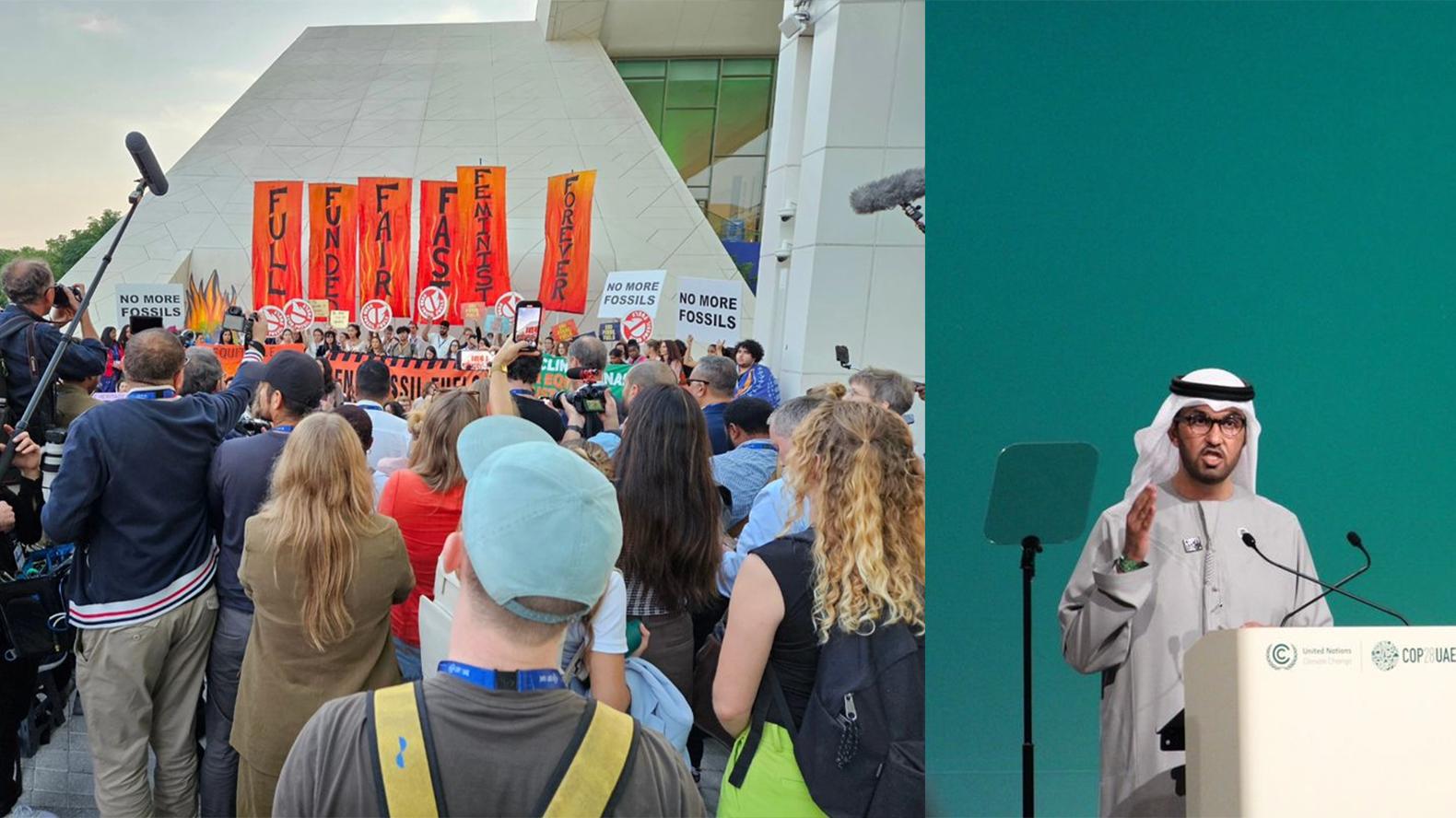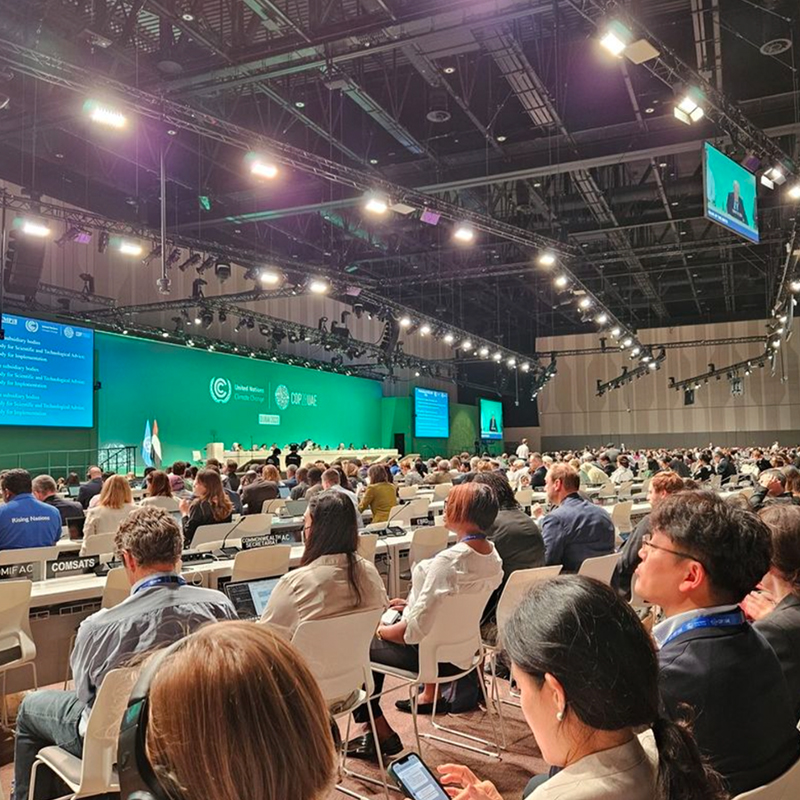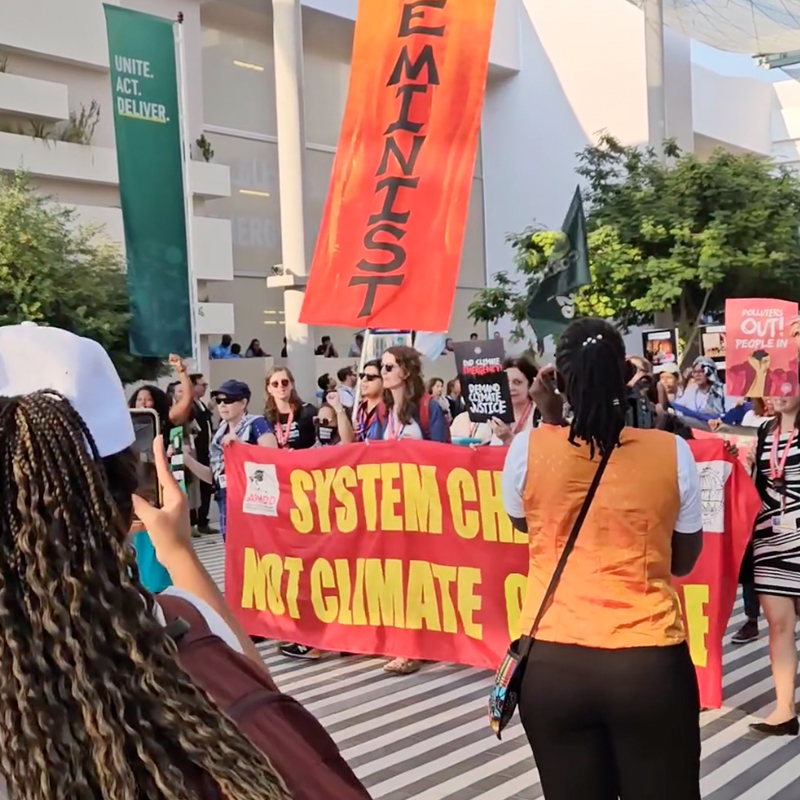
Contrast the hopes and aspirations of our UBC colleagues below with the outcome from the ‘UAE Consensus’ agreed at COP28 and the reaction to the deal by civil society.
Words: Niki Afsharpour. Images: David Tindall.

In the runup to UN Climate Conference (COP28), my colleague Ruitong Zhao and I held refreshingly personal and poignant interviews with UBC’s delegates in the Nitobe Memorial Garden. Delegate messages painted a shared climate experience that is reflected between people and the environment as well as between the personal and the universal.
Join me in the gardens as COP28 wraps-up to hear what these bold students, faculty and staff had to say.
Viewing climate change in a holistic way
William Cheung emphasized the importance of identifying links between climate and society. “I'm interested in following discussions about how climate change is linked to other societal challenges, particularly biodiversity conservation and food security. It is very important that we remove the silo of the discussion of societal challenges.”
Anjali Desai also spoke to her experience with holistic approaches to climate action. “My previous education has been in the areas of economics, political science and compliance law, which has allowed me to understand [the] interdependencies of factors which we usually tend to evaluate in silos and approach the topic of sustainability much more holistically.”
Muhammad Huzaifa talked about bringing a lens of interconnectivity to community solutions that centre human wellbeing. “A lot of issues of climate change do impact us physically, but also mentally. So, the idea is to have a kind of emotional health and well-being [conversation] related to climate action and mitigation.”
The global role of UBC as a dynamic academic community and the importance of representation in climate action
Taryn Alessandra Cigagna spoke further about gaining knowledge to inform climate action and decision-making. “I'm absolutely interested in listening to the diverse voices and perspectives that may otherwise be overlooked in decision-making processes, as both an act of global solidarity and in addressing these shared challenges, and receiving guidance and ideas and inspiration [on] how we can approach these challenges at UBC.”
Dua Naqvi emphasized the importance of representation in just transition conversations. “So far, I've really only heard the Canadian side of the story for the energy transition. So it would be really interesting to see how people from other places and particularly those with Indigenous backgrounds feel [about] the impact of this transition.”
Rickey Yada shared how collaboration motivates his climate action work. “The message I’d love to send out to the UBC community is to talk about what we do at UBC because we do so many wonderful things around climate action. I love working with all the faculties because I would argue that all of the faculties have a big interest and are doing so much around climate action.”
Heightened anticipation about the initiation of the Loss and Damage Fund
(The Fund was agreed to at COP27 after over 20 years of advocacy and will provide funding for countries most heavily impacted by climate disasters.)
Videsh Kapoor expanded on the initiation of the Fund. “I'm interested to see how [Loss and Damage] discussions will translate into actionable steps that the most vulnerable populations can benefit from, and what the responsibility of some of the wealthier nations will be.”
Mina Nepali also shared her interest in Canada’s role relating to the Loss and Damage Fund. “I talked with Members of Parliament [at a recent conference] about Loss and Damage and how Canada in general can contribute to climate action.”
Gravitating towards hope
Abul Bashar Rahman shared his motivation for engaging in climate action and attending COP28. “Just seeing the magnitude of this problem and how people have a deep sense of hope and empathy in tackling this issue truly drives me to be a part of this movement in making sure I do my part in making our world a better place.”
David Tindall expanded on the role of hope in mobilizing collective climate action. “Our challenge is really being able to act collectively. And in order to act collectively, we have to give people hope, and we have to point them in a plausible path which we can follow to address solutions.”

Thank you to the UBC delegates for sharing your experiences and representing our community at COP28!
If you’re interested in further engaging with COP28 or UN Climate Conferences in the future, feel free to check out the Sustainability Hub’s COP28 page and connect with the team at ubc.atCOP@ubc.ca.
Check out what delegates are up to
- Muhammad Huzaifa’s research group: Phototechnology Innovation lab
- Videsh Kapoor shared learning modules accessible to anybody with a CWL login: UBC Medical Students for Climate Action
- Abul Bashar Rahman’s documentary and climate atlas project: Stories of Change (will be screened at the UBC Robson in January)